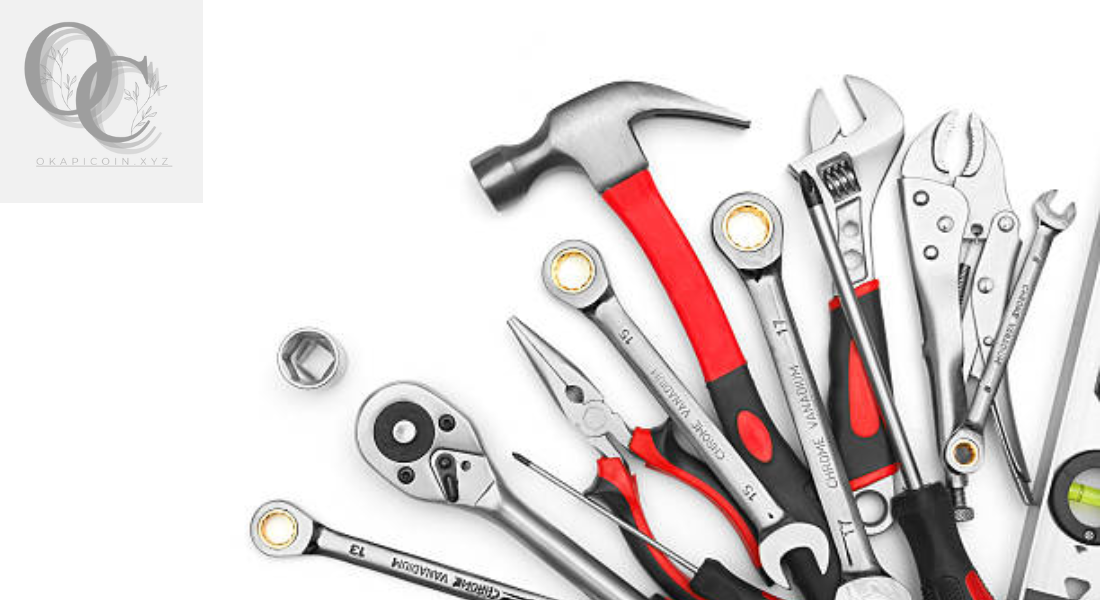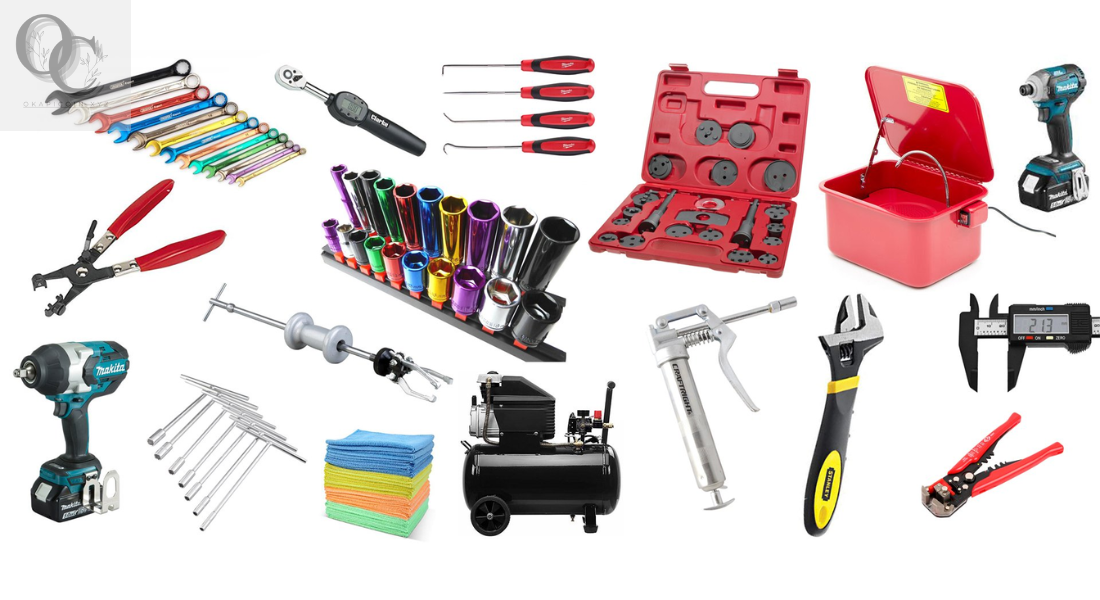Blog
Best Car Tools for Beginners Essential Gear for Easy DIY Maintenance
Starting out with car maintenance might seem intimidating, but having the best car tools for beginners makes it a lot easier. With the right tools, you can handle basic tasks like changing a tire, checking your battery, or even performing routine oil changes. Learning these skills can save time and money while giving you a sense of control over your vehicle. This guide covers the essential car tools that every beginner needs to get started, with tips on how to use them effectively.
Why Invest in the Best Car Tools for Beginners?
Starting with high-quality car tools can make all the difference in how easy and enjoyable basic car maintenance feels. Here’s why investing in the best car tools for beginners is worth it:
1. Saves Time and Money
Simple repairs, like changing wiper blades or checking tire pressure, can be done at home with the right tools. This saves on mechanic fees and ensures your car stays in great condition.
2. Builds Confidence in Car Care
Using basic tools helps you understand how your car works, boosting your confidence to handle issues that arise. This knowledge is helpful for both everyday maintenance and unexpected situations.
3. Increases Road Safety
Knowing how to handle minor car repairs keeps your car safer on the road. For example, understanding how to check tire pressure and change a flat can prevent breakdowns and improve driving safety.
4. Reduces Reliance on Mechanics
While professionals are needed for complex repairs, having beginner tools means you won’t need a mechanic for every small issue. You can manage minor repairs, extending the life of your car’s parts.
Essential Car Tools Every Beginner Should Have
To get started with basic car maintenance, here’s a list of essential tools to keep in your vehicle or garage:
1. Socket Set
A socket set is fundamental for removing and tightening bolts and nuts in various car components. Look for a beginner-friendly set with multiple socket sizes to cover most bolts you’ll encounter.
Usage Tip: Use the socket set for tasks like changing the battery, replacing spark plugs, or adjusting loose parts.
2. Tire Pressure Gauge
Maintaining the right tire pressure improves safety, fuel efficiency, and tire life. A tire pressure gauge is an easy-to-use tool that allows you to check if your tires need inflating.
Usage Tip: Keep the tire pressure gauge in your glove compartment and check tire pressure once a month or before long trips.
3. Car Jack and Jack Stands
A car jack lifts your vehicle to give you access to the underside, while jack stands hold it securely in place. These tools are essential for changing tires, checking the brakes, and other tasks under the car.
Usage Tip: Always use jack stands after lifting your car with the jack. Never rely on the jack alone for safety.
4. Lug Wrench
A lug wrench is used to loosen and tighten the lug nuts on your wheels, a necessity for changing a flat tire. Choose one with a cross-shape or a long handle for better leverage.
Usage Tip: Carry a lug wrench in your car’s trunk, as it’s essential for tire changes on the go.
5. Jumper Cables
Dead batteries can happen unexpectedly, and jumper cables allow you to restart your car by connecting to another vehicle’s battery. This tool is a must-have in every car emergency kit.
Usage Tip: Familiarize yourself with the correct way to connect jumper cables, as improper use can cause damage.
6. Torque Wrench
A torque wrench helps you apply the correct amount of pressure when tightening bolts and nuts. This is especially useful for lug nuts, as overtightening can damage the threads.
Usage Tip: Use a torque wrench when reinstalling wheels or working on engine parts that require specific tightness levels.
7. OBD2 Scanner
An OBD2 scanner reads your car’s diagnostic codes, making it easier to identify issues without visiting a mechanic. Many affordable, user-friendly scanners display error codes and help you understand potential problems.
Usage Tip: Plug the scanner into your car’s OBD2 port to check for issues whenever the check engine light comes on.
8. Screwdriver Set
A set of screwdrivers, including both flathead and Phillips head types, is essential for many small tasks. These come in handy for working on interior parts or tightening screws in various car components.
Usage Tip: Choose a magnetic-tip screwdriver set, which makes it easier to handle small screws in tight spaces.
9. Battery Terminal Cleaner
Battery corrosion is a common problem, and a battery terminal cleaner removes buildup to ensure a solid electrical connection. This simple tool extends battery life and helps prevent starting issues.
Usage Tip: Check and clean your battery terminals every few months, especially if you notice white or greenish corrosion.
10. LED Work Light
A portable LED work light illuminates dark areas under the car or inside the engine bay. Choose a rechargeable, hands-free option for convenience.
Usage Tip: Keep an LED work light in your garage or trunk to have it ready for nighttime repairs or emergencies.

Tips for Using Car Tools Safely and Effectively
Using car tools confidently and safely makes a big difference in your DIY experience. Here are some key tips for beginners:
- Start with Basic Tasks: Begin with simple tasks like checking tire pressure or replacing wiper blades. This builds your skillset gradually, helping you become more comfortable with car maintenance.
- Read Your Car’s Manual: Your car’s manual provides specific information on maintenance tasks, including the recommended torque settings and part locations. Always consult the manual before starting a new repair.
- Wear Safety Gear: Basic safety gear, like gloves and safety glasses, prevents injury during repairs. Some tasks, like working with batteries or under the car, require extra protection.
- Use Tools as Directed: Avoid using tools for tasks they weren’t designed for, as this can damage both the tool and your car. Each tool has a purpose, so use them accordingly for safe, efficient repairs.
- Keep Tools Organized: Organizing your car tools helps you find what you need quickly and keeps your workspace tidy. Use a toolbox or tool organizer to store everything in one place.
Top Picks for the Best Car Tools for Beginners
Here are some recommended beginner-friendly car tools known for quality, ease of use, and affordability:
- DEWALT Mechanics Tool Kit: A durable socket and wrench set that’s perfect for most basic car repairs.
- AstroAI Digital Tire Pressure Gauge: An accurate, user-friendly gauge that makes checking tire pressure quick and easy.
- Torin Big Red Car Jack: A reliable car jack with high lifting capacity, ideal for changing tires or accessing the underside.
- NOCO Boost Plus Jump Starter: A portable battery booster that’s easy to use and more convenient than traditional jumper cables.
- BlueDriver OBD2 Scanner: A wireless scanner with a companion app that provides in-depth diagnostic information.
Why Having the Best Car Tools for Beginners is a Smart Choice
Investing in the best car tools for beginners gives you control over your vehicle’s maintenance and prepares you for minor repairs. These tools help you perform essential tasks with confidence, reduce trips to the mechanic, and extend the life of your car. With the right tools on hand, you can handle routine maintenance, emergency repairs, and even save money by doing basic repairs yourself.
Final Thoughts: Equip Yourself with the Best Car Tools for Beginners
Learning to care for your car can be easy and rewarding with the best car tools for beginners. By starting with simple, reliable tools, you gain valuable skills, confidence, and independence on the road. Equip yourself with these essentials, and enjoy the benefits of DIY car maintenance.

